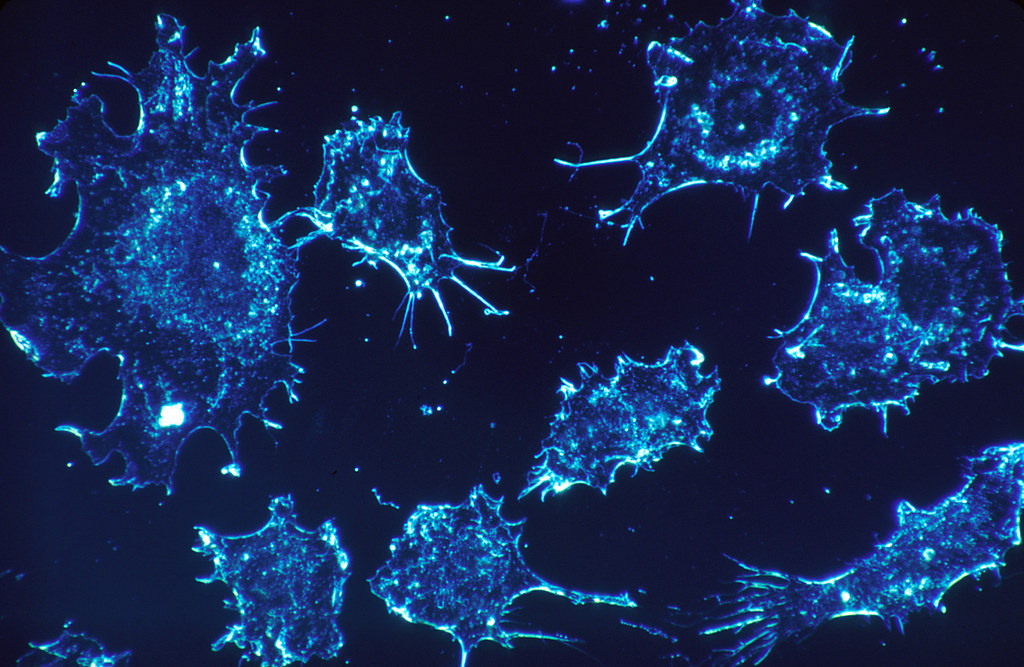A discovery about the way tumours develop has led to hope for a new generation of cancer treatments.
View this video on YouTube
The British-led study, published yesterday in the journal Science, found that even complex cancers may have a weak spot that could be exploited.
Cancers mutate as they grow. That means that our immune system struggles to fight them.
Immunotherapy, using the immune system to fight cancer, has taken off in the last few years. But it relies on the immune system being able to spot the cancer cells.
What the new study has shown is that even the most complex tumours have some markers which are the same throughout, and that some T-cells target these universal markers.
What the researchers hope is that, in future, cancer treatments could tell your immune system to target these universal markers, so that it will naturally fight the cancer everywhere in your body.

For instance, if doctors can recognise the universal markers in a patient's tumour, they could isolate the T-cells which attack them, and grow them in huge numbers.
Other scientists have expressed cautious excitement, but new drugs will be some years away.
"Whether this can be applied in general is early days yet," Professor Peter Lane, a T-cell specialist at the Institute of Immunology and Immunotherapy, told BuzzFeed News. "It's an extension of what people have been finding out over the last few years.
"I think it's an interesting idea, and there's no doubt that immunotherapy for cancer has been the major talking point in cancer for the last five years. There have been some spectacular results."
It's not clear how long it will be before this leads to new treatments, he said. "Getting stuff into people is often quite glacial because of regulatory steps, but I admire their enthusiasm [in saying that trials could be two years away].
"It depends how much regulators are prepared to bypass regulatory requirements. Sometimes in terminal cancer you can get past this stuff quite quickly, because the alternative is worse."
"It's really exciting," Professor Tim Elliott, of the Centre for Cancer Immunology at Southampton University, told BuzzFeed News. "A major step forward, I think. It points towards potential vaccines, and it also tells us which tumours are likely to respond to these immunotherapies."
He said that preliminary trials could indeed be two or three years away. But, he said, "you need to sequence the whole genome from every individual, so the note of caution is that bigger trials will be hard work".

